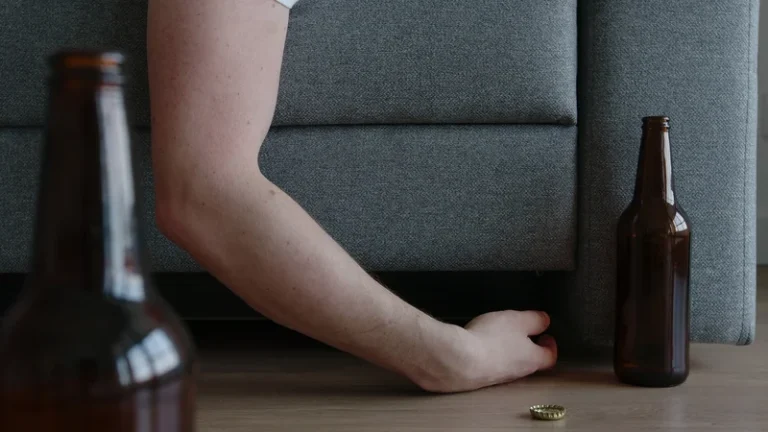
Healthcare providers use the umbrella term “alcohol use disorder” to classify a wide range of problematic alcohol use, such as alcohol abuse, dependence, addiction, and severe alcohol use disorder (alcoholism). Alcohol use disorder (sometimes called alcoholism) is a common medical condition. People with this condition can’t stop drinking, even if their alcohol use upends their lives and the lives of those around them. While people with this condition may start drinking again, studies show that with treatment, most people are able to reduce how much they drink or stop drinking entirely. In this disorder, people can’t stop drinking, even when drinking affects their health, puts their safety at risk and damages their personal relationships. Studies show most people can reduce how much they drink or stop drinking entirely.

What causes alcohol use disorder?
AA is a 12-step program that provides peer support and applies 12 spirituality-based principles. The NIAA offers a list of a number of these support groups, including secular options. Alcoholics Anonymous is a decades-old treatment, but one that research shows is effective. A recent review found that Alcoholics Anonymous led to higher rates of abstinence from alcohol long term compared to other treatments. One of the key reasons, according to the data, is that people continue to participate for years after they have completed the 12-step program. AA is not for everyone and there are plenty of different treatment options, but it can be successful and meaningful for those who choose it.

Lifestyle Quizzes

Alcohol use dropped precipitously when measured four weeks after the study began, but then inched back up at subsequent follow-ups and nearly returned to baseline at the study’s end. Drinking while pregnant can seriously harm the developing fetus, raising the risk of fetal alcohol syndrome, premature birth, and miscarriage. You can help prevent alcohol abuse in your children by setting a good example and using alcohol responsibly, talking openly with them and being involved in their lives, and setting expectations and consequences for their behavior. alcoholism Mutual-support groups teach you tactics to help you overcome your compulsion to drink alcohol.
What are the Symptoms of Alcohol Use Disorder (AUD)?
When you are struggling with alcoholism, it’s important to detox safely, as detoxing on your own can lead to serious adverse effects, including seizures and even death. Your environment also plays a major role in the risk of developing AUD. Your upbringing could have a major impact on the development of AUD, especially if you grew up with parents abusing alcohol in the home. If your home life was stressful, and you watched your parent drink alcohol to manage stress, there is a high likelihood that you will model that behavior as you grow up 5. Additionally, if you lack parental supervision or structure, you are more likely to succumb to peer pressure and develop substance abuse habits early in life. When healthcare providers screen for this condition, they look at drinking behavior patterns within the last year to determine a diagnosis.
- However, it’s difficult to discern if drinking was the primary problem, or whether lifestyle choices such as diet and exercise influenced health outcomes as well.
- However, even a mild disorder can escalate and lead to serious problems, so early treatment is important.
- Very high concentrations of alcohol in the blood can cause breathing problems, coma, or death.
- They should emphasize linking different phases of care, such as connecting patients to mental health professionals, housing, and peer support groups when transitioning out of the acute phase of care.
Can People With Alcohol Use Disorder Recover?

According to the National Institute on Alcohol Abuse and Alcoholism, women shouldn’t drink more than one drink per day, and men shouldn’t drink more than two drinks per day. Alcohol use disorder can cause serious and lasting damage to your liver. When you drink too much, your liver has a harder time filtering the alcohol and other toxins from your bloodstream.
- At Clear Behavioral Health, we are dedicated to the treatment of alcohol use disorder as well as other substance use disorders.
- Additionally, if you lack parental supervision or structure, you are more likely to succumb to peer pressure and develop substance abuse habits early in life.
- Outpatient programs vary in intensity, but you live at home or in a sober living facility and attend therapy and counseling sessions at the treatment center.
- Now there are a variety of evidence-based treatments, including psychotherapy and medication, to treat alcohol use disorders.
- Call your doctor whenever you or someone you love has an alcohol-related problem.
The same is true for any addictive behavior, even if it does not involve a substance. Behavioral compulsions (such as compuslive gambling or excessive gaming) and substance use disorders are not one-dimensional issues. Individuals may be predisposed to these conditions due to a variety of psychosocial, cultural, neurobiological, or genetic factors. As a result, no single root cause underlies all addictions or compulsions. Childhood trauma can fuel problematic drinking in adulthood, because the person might use alcohol to cope with feelings of anger, depression, anxiety, =https://ecosoberhouse.com/ loneliness, or grief. Compared to people without a drinking problem, men and women who sought treatment for alcohol addiction had a higher prevalence of childhood trauma, research finds.
Can GLP-1 Agonists Treat Alcoholism?
The more familiar term “alcoholism” may be used to describe a severe form of AUD, but physicians, researchers, and others in the medical community tend not to use the word. Some have criticized Alcoholics Anonymous and other 12-step programs because they are rooted in religious ideology rather than scientific principles. Some also disagree with the notion of admitting powerlessness to God or a higher power and completely ceding control, and the belief that addiction is a disease, a point vigorously debated in the clinical and scientific communities. The idea that altered forms of consciousness such as mania or alcohol can enhance creativity is a popular belief. Researchers found that participants who Sober living home had a few drinks were better and faster at creative problem solving than their sober counterparts.
- Typically, a diagnosis of alcohol use disorder doesn’t require any other type of diagnostic test.
- Doing this in advance will allow time for both people to process the discussion and set clear expectations.
- However, individuals who have taken GLP-1 agonists have long reported that they found themselves drinking far less without intentionally attempting to do so.
- Therefore, primary care physicians often make a point of use time during a visit to provide education about drinking and its dangers.
Research in animals shows that having more self-determination and control over one’s environment can help facilitate adaptive brain changes after ending substance use. Alcohol use disorder is a problematic pattern of alcohol use that leads to distress in one’s daily life, according to the DSM-5. Experiencing at least two symptoms throughout the course of a year merits a diagnosis, from mild to moderate to severe. In general, alcohol consumption is considered too much—or unhealthy—when it causes health or social problems. This broad category of alcohol consumption comprises a continuum of drinking habits including at-risk drinking, binge drinking, and AUD.


